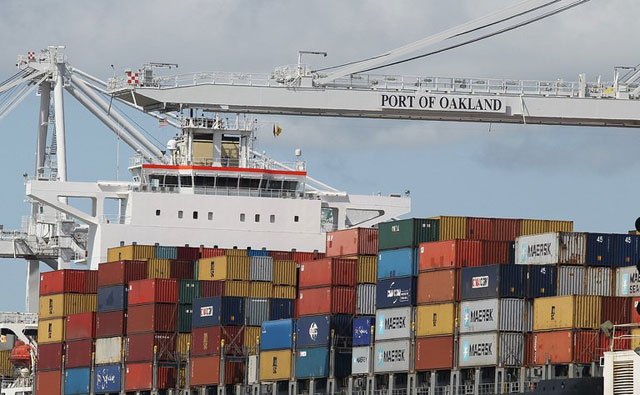According to the latest official figures released by Commerce Department, the US trade deficit with the rest of the world fell to a five-month low in July.
The US trade deficit declined 7.4% to $41.9 billion, compared with $45.2 billion in June, the US Commerce Department said.
It represents the difference between the value of what the US exports to the rest of the world and what it imports.
Exports rose 0.4% to $188 billion, helped by stronger global sales of US cars. Imports fell 1.1% to $230.4 billion.
For much of the year, the US trade deficit has been about 3.6% higher than the previous year as a result of lower export sales.
Some in the US remain concerned that economic growth will be hurt by further declines in exports as a result of a stronger dollar and continued overseas weakness in the world’s second-largest economy, China.
Sal Guatieri, senior economist at BMO Capital Markets, forecast trade would continue to drag on US economic growth over the next year. He added a stronger dollar would harm exports and boost demand for imports by making foreign goods cheaper for US consumers.
A sharp slowdown in China in recent market has led to volatile financial markets in recent months, as investors have become concerned that China’s slowdown could have an adverse impact on global growth.
The International Monetary Fund (IMF) said on September 2 that China’s slowdown, volatile financial markets and falling raw materials prices could lead to “a much weaker outlook'” for global growth.
The price of raw materials such as oil and copper has fallen sharply, increasing the economic problems of Brazil, Russia and other commodity exporters.
The July trade report showed that America’s deficit with China rose 0.4% in July to $31.6 bn, the highest level in nine months.
So far this year, the US deficit with China is 8.5% higher than in 2014 and is on track to notch up another annual record. The US trade gap with China is its largest with any country.
Elsewhere, the US trade deficit with the EU climbed to a new record high of $15 billion, as US exports to the EU fell by 5%.
In August, China allowed its currency to devalue, a move that was largely seen as a way to boost exports. But the move will also widen its deficit with nations such as the US.
https://www.youtube.com/watch?v=dbdvCBaF56A
